第4章 Chapter 1(4)
Under these circumstances the mercantile system was moulded into a plausible form; and doubtless it must have been plausible, since, even till our own times, it continued to seduce the greater part of practical men employed in trade and finance.
Wealth, said those earliest economists, is money: the two words were received into universal use as almost entirely synonymous; no one dreamed of questioning the identity of money and wealth.
Money, they said, disposes of men's labour and of all its fruits.
It is money which produces those fruits; it is by means of money that industry continues in a nation; to its influence each individual owes his subsistence and the continuation of his life.
Money is especially necessary in the relation of one state to another. It supports war and forms the strength of armies. The state which has it, rules over that which has it not. The whole science of political economy ought, therefore, to have for its object the increase of money in a nation. But the money possessed by a nation cannot be augmented in quantity, except by the working of mines, if the nation has any; or by foreign trade, if it has none. All the exchanges carried on within a country, all the purchases and sales which take place among Englishmen, for instance, do not increase the specie contained within the shores of England by a single penny. Hence it is necessary to And means of importing money from other countries; and trade alone can do this by selling much to foreigners and buying little from them.
For in the same way as each merchant in settling with his correspondent, sees at the year's end whether he has sold more than he has bought, and Ands himself accordingly creditor or debtor by a balance account which must be paid in money; so likewise a nation, by summing up all its purchases and all its sales with each nation, or with all together, would find itself every year creditor or debtor by a commercial balance which must be paid in money. If the country pay this balance, it will constantly grow poorer; if it receive the balance, it will constantly grow richer.
For a century, the mercantile system was universally adopted by cabinets; universally favoured by traders and chambers of commerce; universally expounded by writers, as if it had been proved by the most unexceptionable demonstration, no one deeming it worth while to establish it by new proofs; when, after the middle of the eighteenth century, Quesnay opposed to it his Tableau Economique, afterwards expounded by Mirabeau and the Abbe de Riviere, enlarged by Dupont de Nemours, and adopted by a numerous sect which arose in France, under the name of Economists. In Italy too this sect gained some distinguished partisans. Its followers have written more about the science than those of any other sect; yet they have admitted Quesnay's principles with such blind confidence, and maintained them with such implicit fidelity, that one is at a loss to discover any difference of principle, or any progress of ideas in their several productions.
Thus Quesnay founded a second system in political economy, still named the territorial system, or more precisely the system of the economists. He begins by asserting that gold and silver, the signs of wealth, the means of exchange, the price of all commodities, do not themselves constitute the wealth of states; and that no judgment can be formed concerning the prosperity of a nation, from the abundance of its precious metals. He next proceeds to survey the different classes of men, all of whom, occupied in gaining money, and causing wealth to circulate, even when acquiring it for themselves, are not, according to him, occupied with any thing besides exchange. He endeavours to distinguish the classes possessed of a creative power; it is amongst them that wealth must originate, all the transactions of commerce appearing to be nothing else but the transmission of that wealth from hand to hand.
The merchant who carries the productions of both hemispheres from one continent to the other, and on returning to the ports of his own country, obtains, at the sale of his cargo, a sum double of that with which he began his voyage, does not, after all, appear, in the eyes of Quesnay, to have performed any thing but an exchange. If, in the colonies, he has sold the manufactures of Europe at a higher price than they cost him, the reason is, they were in fact worth more. Together with their prime cost, he must also be reimbursed for the value of his time, his cares, his subsistence, and that of his sailors and agents during the voyage. He has a like reimbursement to claim on the cotton or sugar he brings back to Europe. If, at the end of his voyage, any profit remains, it is the fruit of his economy and good management. The wages allowed him by consumers, for the trouble he has undergone, are greater than the sum he had expended. It is the nature of wages, however, to be entirely expended by him who earns them; and had this merchant done so, he would have added nothing to the national wealth, by the labour of his whole life; because the produce which he brings back does nothing more than exactly replace the valuE of the produce given for it, added to his own wages, and the wages of all that were engaged with him in the business.